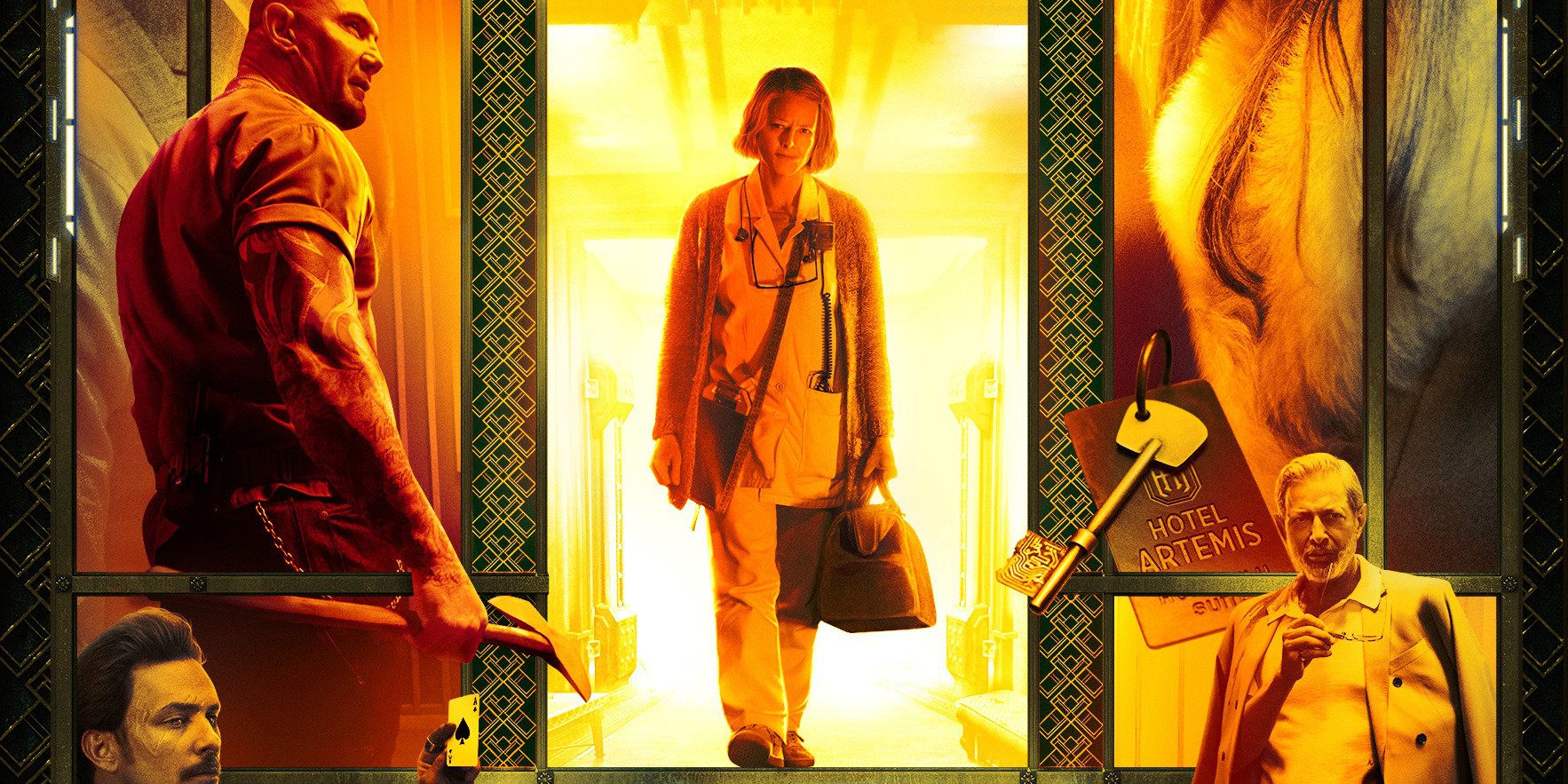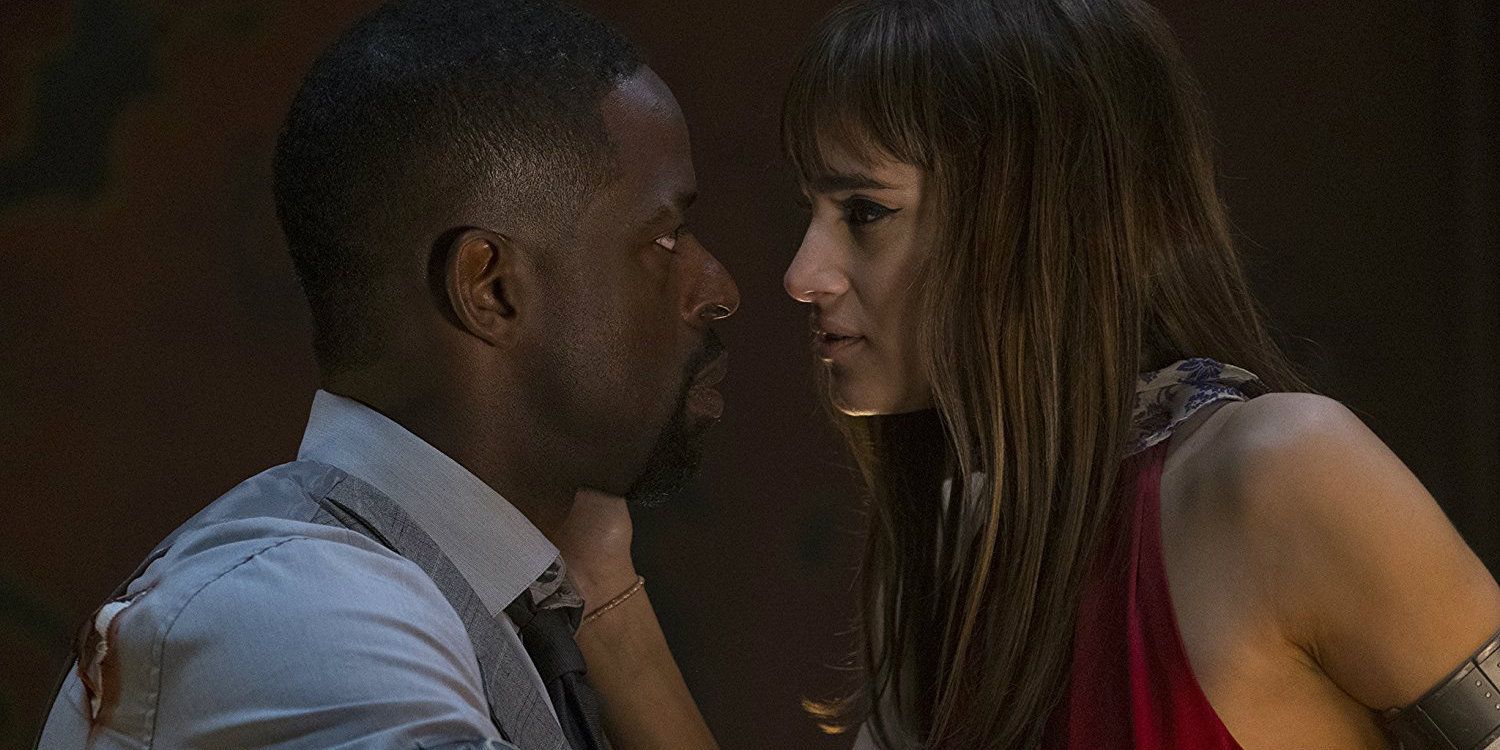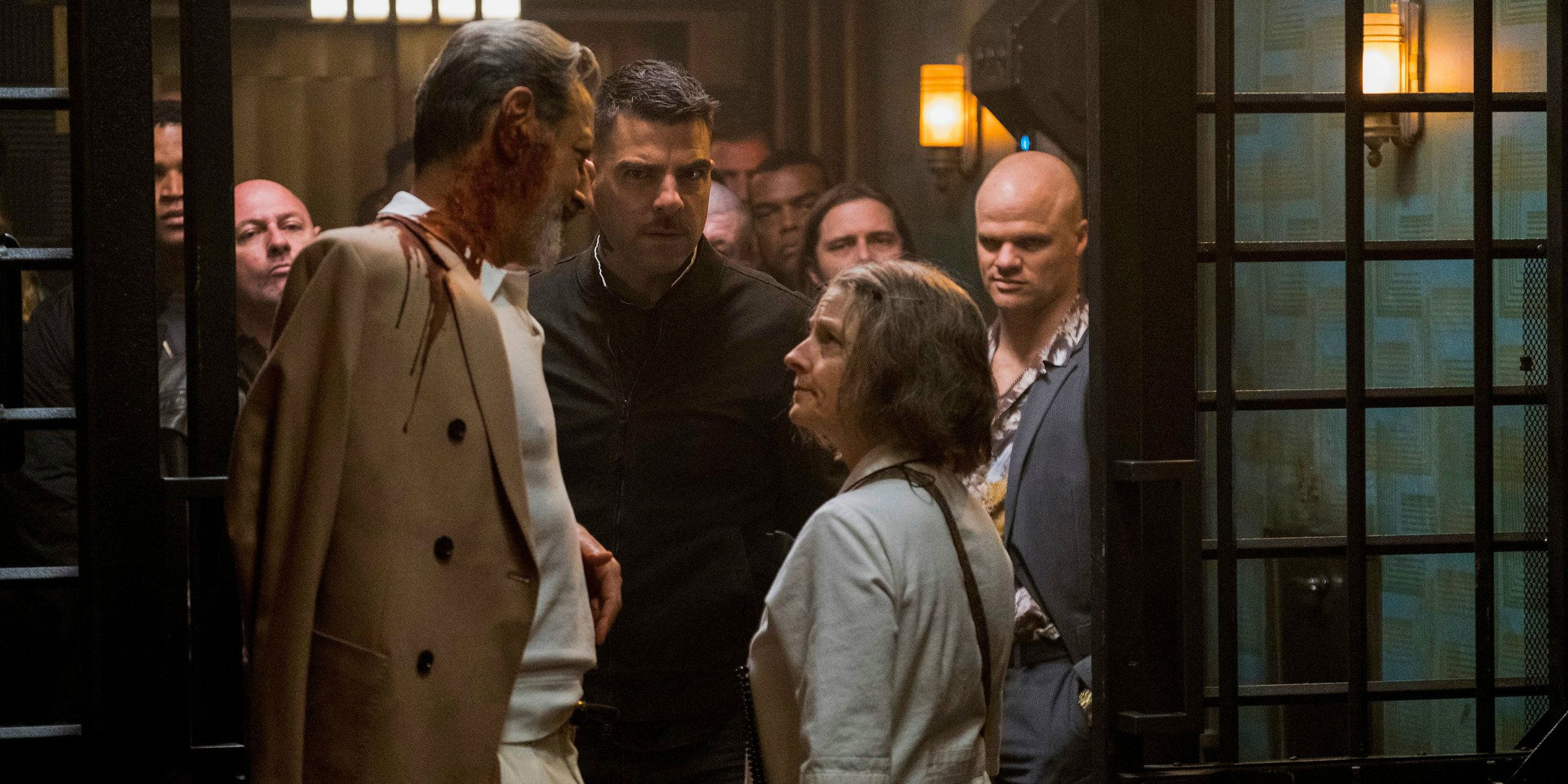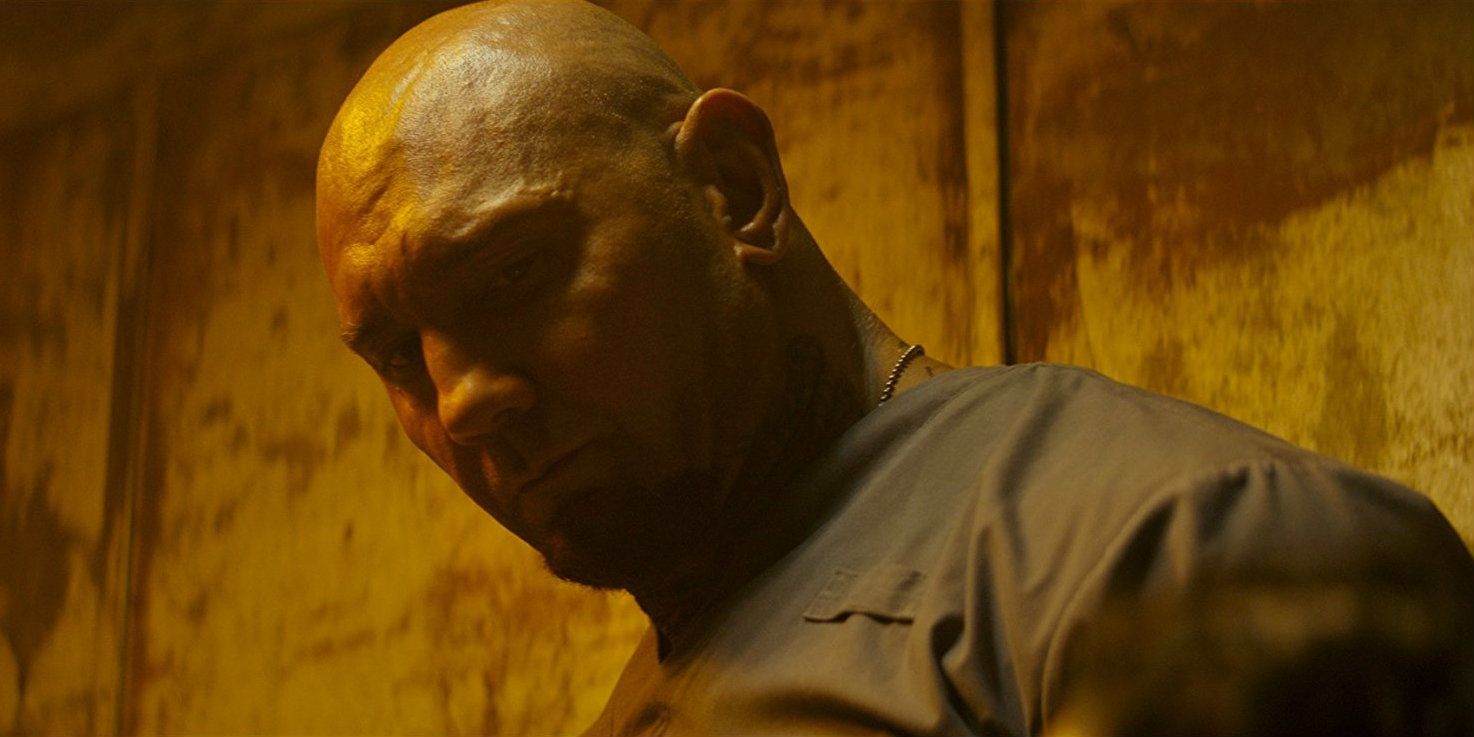Hotel Artemis makes for an intriguing exercise in pulpy sci-fi noir, even though the film's story leaves something to be desired.
Hotel Artemis is an unusual mashup of science-fiction and noir in the sense that it's more classic noir than it is modern sci-fi. The film's concept was interesting enough to get Jodie Foster to return to the big screen for the first time in five years and further succeeded in attracting an A-grade ensemble of character actors and rising stars. Director Drew Pearce (making his feature debut) is a ways away from his days writing box office friendly movies like Iron Man 3 and Mission: Impossible - Rogue Nation here, but he's also more willing to take risks - some of which even pan out. Hotel Artemis makes for an intriguing exercise in pulpy sci-fi noir, even though the film's story leaves something to be desired.
The year is 2028 and Los Angeles finds itself rocked by the biggest riot in recent history. When two brothers and lifelong crooks (Sterling K. Brown and Brian Tyree Henry) take advantage of the ensuing chaos to rob a high-profile bank, they end up getting caught in the crossfire and badly injured during their escape. That leaves them with just one place to go: Hotel Artemis, a thirteen-story hospital for criminals that's members-only and adheres to a strict set of rules laid down by its proprietor, whom most people know as simply "The Nurse" (Foster).
With guests that include a deadly French assassin (Sofia Boutella) and an aggressive arms dealer (Charlie Day), The Nurse has plenty on her plate to deal with, even before the two brothers show up at her door. Things become all the more complicated when a woman from The Nurse's past (Jenny Slate) later shows up severely wounded, around the same time that Nurse gets a phone call telling her that The Wolf King (Jeff Goldblum) - the crime boss who essentially runs LA these days - is on his way to pay her a visit. It looks like it's going to be a very busy night at the Artemis after all.
Certain aspects of Hotel Artemis bring to mind recent genre movies like John Wick and The Purge, but for the most part their similarities are surface-level only. If anything, Hotel Artemis takes more of its inspiration from the hard-boiled crime narratives that were all the rage in the 1940s and '50s, in both film and literature. Like those works, Hotel Artemis paints a bleak portrait of society and serves up social commentary through the lens of crime thriller tropes and conventions. Admittedly though, the story being told here isn't all that interesting on its own and relies too heavily on contrivances and coincidences for its own good. What really keeps the film absorbing is the fictional universe it takes place in and, especially, the people who live there.
Hotel Artemis is similarly messy, but effective, when it comes to world-building. The film reveals just enough about the seedy, yet distinctly futuristic underworld in which it takes place to serve its story, without going overboard with explanations about what led to the current state of things in the world or how its shiny new technology (holograms, machines that "print" human organs) came to be. Pearce's film doesn't have the rich lore that the John Wick movies have, but it's also not focused on exploring the minutiae of its criminals and professional killers' lives the way that series is. Rather, Hotel Artemis is about how everyday people learn to adapt and keep living their lives, even when the world around them is going to hell in a hand-basket.
That approach only works because the film's many characters are compelling variations on noir archetypes. Foster naturally gets the meatiest role here as Nurse - whose dry humor masks her struggles with anxiety and a past she cannot escape - but Brown, Boutella, and Day are all equally good and know exactly which notes to strike in their parts (be it emotionally dramatic, hammy, or intense). Dave Bautista also does solid work as The Nurse's burly, yet sensitive associate Everest, while Goldblum shows up to deliver lines in the way that only he can as the ever-cool King of Los Angeles. If there's a weak spot in the film's cast, it might be Zachary Quinto, who never quite settles into playing The Wolf King's emasculated son.
Hotel Artemis successfully takes its time to develop its characters and flesh out their relationships over the course of its first (slow burn) two-thirds, before ramping things up with the final act. Pearce and IT cinematographer Chung-hoo Chung further establish a grungy noir aesthetic early on and photograph the titular set piece in a way that makes it seem truly lived-in, even with the film's (at times, obvious) budget constraints. The quiet buildup ultimately pays off in a violent finale that includes some creatively grisly deaths and staged action, which is further aided by the film's moody and propulsive Cliff Martinez score. Hotel Artemis doesn't take too long in getting to its final destination either, thanks to the movie's tight runtime.
All things considered, Hotel Artemis is an uneven but enjoyably weird pastiche of noir conventions and sci-fi dystopia, led by a cast of great actors in roles that seem almost tailor-made for them (and may well have been). At the same time, the film' story is one of its weakest elements and its setting, while fascinating on its own, isn't ripe for further exploration in the way that the world of John Wick or even The Purge is. Pearce makes a solid directorial debut with his efforts here even though, as these criticisms call attention to, he's just starting to find his voice as a storyteller. As such, Hotel Artemis might not be the place for an extended stay, but it's worth paying a visit to - be it from the comfort of your home or in a theater.
TRAILER
Hotel Artemis is now playing in U.S. theaters nationwide. It is 93 minutes long and is rated R for violence and language throughout, some sexual references, and brief drug use.
Let us know what you thought of the film in the comments section!




